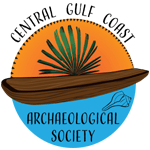Sticks of Fire: Toponymic Imaginaries in Tampa Bay
Dr. Thomas Pluckhahn, University of South Florida
It is a story repeated so often as to be widely accepted as fact: the city of Tampa—and, by extension, the eponymous estuary on which it is located—take their names from a word for “sticks of fire” or “split wood for quick fires” in the language of the Calusa. But the translation appears to have little basis in fact and is only the most recent of several that have been offered over the years. Dr. Pluckhahn traces the history of these imagined translations and speculates on why modern residents of Tampa Bay seek meaning in a toponym whose actual translation is likely lost to history.
Dr. Thomas Pluckhahn is a Professor in the Department of Anthropology at the University of South Florida. His research focuses on the understanding of small-scale social formations, particularly on the Native American societies of the Woodland period (ca. 1000 BC to AD 1050) in the American Southeast and those of the Swift Creek and Weeden Island cultures of the Gulf Coast.
This monthly Archaeology Lecture series is co-sponsored by the Alliance for Central Gulf Coast Archaeological Society (CGCAS) and Weedon Island Archaeological Research and Education (AWIARE).


